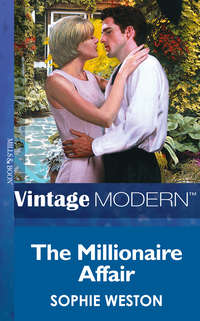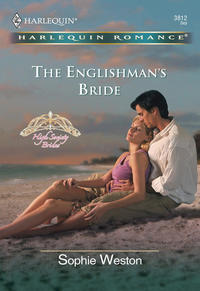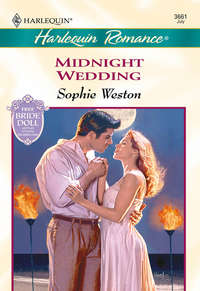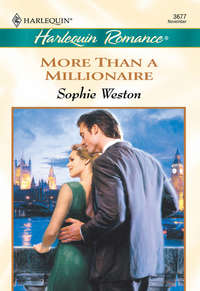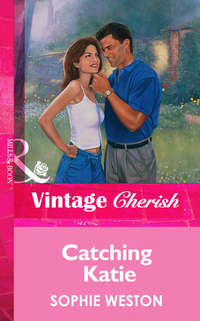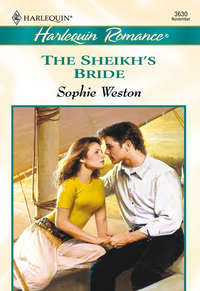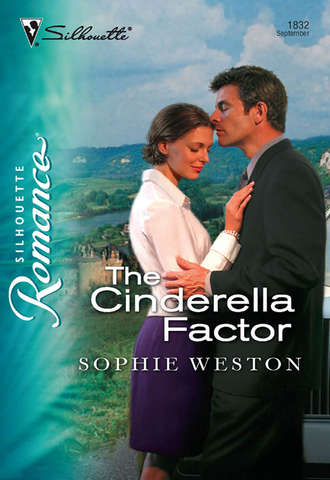
Полная версия
The Cinderella Factor
Now, she knew, Mark would have to do the same.
‘Get out of there now,’ she said, ice cool now that the worst had happened. ‘Do you know where he keeps your birth certificate and your passport?’
‘Yes. I saw him put them in the old biscuit barrel the last time he changed the hiding place.’
It figured. As well as being violent, Brian Grey was sly and secretive. But nobody ever said he was bright. What an uncle I have, thought Jo.
Aloud, she said, ‘Get them, and meet me at the bus station as soon as you can.’
‘But—’ Mark sounded ashamed. ‘I’m not like you. I haven’t got any money, Jo.’
Her heart clenched with pain for him. ‘Don’t worry, love,’ she said gently. ‘I have. I’ve been saving for this a long time.’
She waited at the bus station for hours. When Mark came he was limping, and one side of his face was so badly bruised that his eye was closed. Jo’s heart contracted in fierce protectiveness. But he grinned when he saw her.
‘Got them,’ he said, waving the small red book at her.
She hugged him swiftly. ‘Did you have trouble getting away?’
He shrugged. ‘Brian’s out cold and Carol was shopping. They think I haven’t got anywhere to run to.’
The adult world didn’t believe Mark any more than it had believed Jo.
‘Where are we going?’
‘First the ferry. Then, France,’ said Jo, out of her new, beautiful certainty.
Mark sucked his teeth. ‘To Mr Sauveterre?’
‘Yes.’
Mark looked at her oddly. ‘Oh.’
It looked as if Carol had told him the tale about her adolescent crush. Jo winced inwardly, but aloud she said in a steady voice, ‘Jacques is married now. He said we’d always be welcome.’
She bought their tickets at the big bus station and they embarked on an adventure of long-distance buses and ferries, crowded with families going on holiday. Mark talked cricket with a father and son, while Jo tried out her careful French. She was astonished to find the crew speaking back to her as if they understood.
After Boulogne there were more buses, slower and cosier—and a lot chattier. Then a lift from a kindly lorry driver. By that time Jo was rattling away easily in French. Even Mark was inserting a grunted comment or two.
This is going to work, Jo thought.
She had not realised how deeply pessimistic she had been. Not for herself, so much. After four years she knew she could survive pretty much anything if she kept her head. And she’d had a lot of practice in keeping her head by now. But she was scared for Mark. After all, he was a source of income for the Greys. Carol did not lightly let money pass out of her hands.
All through their journey Jo was alert for any sign of pursuit. But once they reached the Lot et Garonne she accepted it at last. No one was chasing them. They were home free.
In the little village they got directions to the Sauveterres’ organic smallholding.
They walked along a small winding path that climbed a hillside, golden in the evening. The French countryside opened green arms to them. The sun turned the quiet road to gold dust between the hedges.
And when they got to the Sauveterres’ property Jacques hugged them as if they had just got back from Antarctica.
‘I have always had such a conscience about leaving you two behind in that rainy place,’ he said, ruffling Mark’s hair.
Though he smiled, Jo thought from the look in his eyes that he meant it.
Over the years, Jacques had forgotten all about her teenage crush. He and his pretty, kind wife Anne Marie welcomed their unannounced visitors without reservation. Mark could stay with them as long as he wanted, they said. They pressed Jo to stay, too.
Jo said no. Not for more than a couple of nights.
Jacques might have forgotten her crush on him. But Jo hadn’t. Blond Anne Marie was even prettier than the photograph he had sent. Prettier, and sweeter, and a petite five foot three. Also, just at that moment, six months pregnant.
Jacques was no longer a teacher. The Sauveterres were trying to make a living from their organic market garden. Their tumbledown farmhouse was wonderfully homely, but Jo knew about being hard up. Her sensitised antennae picked up lots of signs that money was tight. For all their kindness, the Sauveterres could not afford another mouth to feed. And anyway—
Whenever she thought about it, Jo hugged her arms across her breast defensively.
Well, Jacques and his Anne Marie were breathtakingly, idyllically happy. Every time they met—in the fields, in the kitchen, even on their way to and from the barn—they touched and kissed. And smiled into each other’s eyes. Every gesture said Look at us, see how in love we are.
Jo did not wish them less in love. Of course she didn’t. But pretty Anne Marie, with her soft flying hair and tanned, perfect legs, made Jo realise just how tall and plain she was herself. How unfeminine.
There was nothing to be done about it. Some people were just born unlovable. She accepted that. But, watching Anne Marie and Jacques—well, she minded.
‘This,’ said Jo, taking herself for an early-morning walk with the goats, ‘is a bit of a shock.’
She had so focused on getting Mark away from the Greys that she had not thought about herself. Now she took stock, and it was like a douche of cold water.
She did not have to spend long in front of Anne Marie’s mirror to see what the world saw: a six-foot scruff in combat trousers. Her nails were bitten. Her hair was a brown thatch like the rag doll scarecrow she’d had as a very small child. Her tee-shirt had holes. Her shoulders were as broad as Jacques’s. No one was ever going to put their arm lovingly round shoulders like that.
‘And just as well,’ said Jo, aloud and firm. Aloud and firm usually helped. ‘Love makes you weak. You can’t afford that, Jo Almond.’
She wandered down the hillside, attended by curious goats. ‘I am happy,’ she told herself firmly.
It sounded good. And it was—nearly—true.
‘I have never been this happy before.’
And that was certainly true.
Suddenly Jo grinned, stretching her arms above her head. ‘It’s a start,’ she said gleefully. ‘It surely is a start.’
It was more than a start. Within a week she had a job, and a place to stay, too.
It came about by pure chance. She was in the local market town, trawling round the businesses to see if anyone needed a waitress, a storeroom hand, a messenger. The square had cobbles and stone arcades and a balcony that looked as if the Black Prince should be standing on it in full armour, making an arousing speech. To her amusement, she saw that a small crowd had gathered round some object of fascination.
Not the Black Prince, though. Approaching, she found they were grouped about an elderly open-topped Rolls Royce. It was shunting backwards and forwards between a medieval wall and the end of a colonnaded arcade, driven by a young Englishman getting more flustered and profane by the minute. People had even taken seats in the café opposite to enjoy the show.
Jo propped herself up against the wall and watched, too.
The driver was not much older than herself. He had a Caribbean tan which just might be natural, and expensively streaked hair which certainly wasn’t. Her lips twitched. She folded her arms and waited.
‘Look,’ he said to the assembled market-goers. ‘This isn’t helping. Do any of you know how to—? Oh, damn.’ This last as the car hiccupped forwards and grazed one of the columns.
Jo took pity on him. She strolled across and leaned on the driver’s door.
‘Drive her much, do you?’
He glared. ‘She’s my brother’s. I was bringing her down for a grease and a spray. But I took a wrong turning and ended up in the damned square.’ He looked with loathing at the medieval buildings as if they were personal enemies.
She opened the door. ‘Let me. I’ve driven big and old before.’
One of the bonuses of those long-ago car maintenance classes had been that she’d got to drive a lot. None of those cars had been an aristocratic Rolls, but they had been old and cranky—and some of them had been very big. She had no doubt that she could move the car without demolishing the picture-postcard corner.
She was right.
The Rolls came gently to rest in front of the café. The audience at the tables gave a small, polite round of applause. The rest of the crowd dispersed now the fun was over. The young man recovered his temper and thrust out a hand.
‘How did you do that?’ he said, in what appeared to be genuine awe. And, before she could answer, ‘Crispin Taylor-Harrod. Oh, boy, did you save my bacon. Can I buy you a drink?’
Jo accepted coffee. Soon she was sitting beside him in the sunshine, sipping the headily fragrant stuff that bore no relation at all to the mid-morning brew of her last employer.
‘What a bit of luck, bumping into you. I knew it was no good calling the garage to come and help. Old Brassens hates driving anything with right-hand drive. What are you doing round here?’
Jo told him. Well, not everything, obviously. Nothing that would put Mark or the Sauveterres at risk if Carol and Brian had organised pursuit. Just enough to make pleasant conversation in the sunshine before she went back to the serious business of tracking down a living wage.
Crispin frowned when she finished. ‘You want a job? Seriously?’
‘Yes,’ said Jo simply.
‘And you don’t mind what you do?’
‘No. Well,’ she amended hurriedly, ‘within reason. No gogo dancing, no brain surgery.’
He laughed, but his eyes were narrowed as if he were thinking deeply.
‘And you know about old cars?’
Jo was taken aback. ‘I know about old bangers. Nothing in the league of a Roller.’
He dismissed that with a wave of the hand. ‘Yes, but you know about gearsticks and double de-clutching and stuff. You could drive them if you had to move them in and out of a garage, say?’
Jo agreed gravely that she did and she could.
‘Do you like cars?’ He sounded as if it were virtually impossible.
Jo thought about it. ‘Yes, on the whole. They don’t make promises and they don’t let you down unless they can’t help it. They don’t spring many surprises as long as you look after them.’
‘Ah,’ he said. ‘Would you like to?’
‘Like to what?’
‘Look after them?’
‘Look after—’ She broke off, staring at the gleaming aristocrat parked in front of the café. ‘Them? How many Rollers do you have, for heaven’s sake?’
‘Not me. My brother, Patrick. He has a collection.’
‘Well, if he’s a collector he must want to look after them himself.’
‘Inherited,’ said Crispin simply. ‘He’s going to sell them all. He told me to come here and take a look. He’s got some expert coming from Rouen to put the cars back into running order. I’m supposed to be his little helper on the spot. But—well, it’s not really my bag, and I’ve had an invitation to do some sailing up the coast of Spain. So I wondered…’ He looked at Jo speculatively. ‘I’d pay you.’
‘I’m not qualified,’ protested Jo.
Crispin laughed heartily. ‘Good Lord, neither am I. You just have to book in the experts and take notes. I’ve got all the contact details. And it would get me out of prison.’
‘Prison!’
But prison in Crispin Taylor-Harrod’s terms turned out to be a fifteenth-century château, complete with turrets and a world-famous garden, albeit run down. The trouble was…
‘It’s miles from anywhere. No girls.’
Also no transport, no nightclubs, no bands.
‘And my mate Leo has asked me on a boat which is wall-to-wall babes in bikinis,’ said Crispin dreamily. ‘Sex and sangria—that’s what I need. Bit of beach life. Not a load of rusting radiators that haven’t been out on the public road in twenty years.’
‘It seems to me,’ said Jo, torn between laughter and the first stirrings of hope, ‘that you weren’t the ideal choice for the job.’
Crispin grinned unrepentantly. ‘Ah, but I came first. There was a bit of unpleasantness at college, and my mother threw me out. My brother Patrick said I could come here and do something useful. But what he really meant was stay out of trouble and do some revising.’
‘You can’t pay me to do that,’ said Jo, disappointed.
‘Oh, I’ve done all the revising. Nanny Morrison saw to that.’ He tapped his teeth with the little coffee spoon. ‘And now I want to get me some trouble before it’s too late and I have to go back to school.’ His face fell suddenly. ‘Nanny Morrison. I’d forgotten. Blast and botheration.’
‘What?’
‘My brother Patrick doesn’t employ women,’ said Crispin simply. ‘On principle. Nanny doesn’t count. But nothing under fifty need apply.’
‘That’s illegal,’ said Jo, affronted.
Crispin shrugged. ‘Patrick’s house. Patrick’s law.’
Jo bristled. ‘Nobody is above the law.’
Crispin gave a crack of laughter. ‘You should meet my brother Patrick.’
‘He sounds extremely arrogant,’ she said crushingly.
‘Yup. Arrogant, bullying, absolutely no feeling for a young man in his prime, and a hotshot wizard at just about everything.’
‘Revolting,’ she said, from the heart.
‘Yes, but he’s a good guy really,’ said Crispin, changing tack with surprising suddenness. ‘He likes his own way, but he’s not mean with it. Last year he was up for some big award—the Ajax Prize, or something—and when he got it my ma wanted him to go off with a load of big cheeses to celebrate. But he said he didn’t get to the States often and he wanted to spend time with his brother. So he came out clubbing with me and the boys instead.’ He smiled reminiscently. Then his face darkened. ‘Pulled all the talent in sight, too. Me and the boys didn’t stand a chance.’
Jo sniffed. Patrick Taylor-Harrod could be a love god in person. She would still detest him. His stupid prejudice stood between her and the job of a lifetime.
‘But it’s so unfair. I could do this job.’
‘Well, nobody argues with Patrick,’ said Crispin fatalistically. ‘Nanny Morrison would have you out in minutes. She reports to Patrick about everything.’
‘Ah. I wondered how she’d got you to revise,’ said Jo unwarily.
He chuckled, unoffended. ‘Oh, well. It was a nice idea while it lasted. Drive me to the garage? Then you can meet her. She’ll probably ask you up for tea and a swim. Grab it. Her teas are worth it.’
Jo laughed and went with him. But there was a little sting in the invitation as well. Crispin had made it plain that he was desperate for a girl to flirt with—and Jo didn’t even figure on his radar. He liked her. He was grateful to her. He was happy to throw one of Nanny’s teas in her direction, with the careless hospitality of the inherited rich. But she was not flirt-worthy.
Oh, well, it only confirmed what she already knew, she told herself.
And worse was to come. Or better, depending on which way you looked at it.
Mrs Morrison, who looked more like a jobbing gardener than a nanny, wore substantial cotton shorts and a shirt, and, more importantly, huge bottle-bottom glasses. As Crispin had predicted, she took one look at his companion and said, ‘Would you like to bring your friend back to the house for lunch, Crispin?’ And then, not at all as he had predicted, and stunning Crispin and Jo alike, ‘He would be very welcome.’
Crispin barely faltered. ‘That would be great, Nanny. He’s at a loose end right now,’ he said smoothly.
Jo was not as quick as he was. Her mouth opened and shut. No sound came out.
He?
He?
‘Work with me here,’ breathed Crispin.
‘But—’
‘I’ll show you the cars,’ he said loudly. ‘You’re going to love them.’ Then he was shoving her into the back of an old truck. ‘Don’t argue. This could be just what we need.’
‘But—’
He thrust an industrial-sized bag of flour at her. ‘Shut up.’ He raised his voice. ‘Ready when you are, Nanny.’
The truck rattled off at speed. They lurched and clung to the sides.
‘Hell’s teeth, she shouldn’t be driving this thing,’ said Crispin, momentarily side-tracked. ‘If she thinks you’re a boy she must be as blind as a bat.’
‘Thank you,’ said Jo hollowly.
‘But, as she does, she’s not going to be bleating to Patrick about you.’
‘But other people will know I’m a girl.’
‘The only other person around is old George, her husband. He’s in a wheelchair. You can keep out of his way easily enough.’
‘What if your brother comes back, though?’
That gave Crispin pause, but only for a moment. ‘He’s off war-reporting at the moment. Won’t be home any time soon. And when he does get leave he goes to London or Washington or Paris. Definitely one for metropolitan amusements, my brother Patrick. Not a run-down château in rural France. It is so very rural. Besides, even the wine isn’t up to his standard here. Not a premier cru in sight.’
‘Then why on earth did he buy it?’ said Jo, unreasonably annoyed with the unknown Patrick all over again.
‘Didn’t. Also inherited,’ said Crispin absently. ‘Look, the way I see it, you just fill in here for me for a month. I’ll pay you cash. So your name never gets into the books. No one will ever know.’
‘A month?’
He grinned. ‘I’ll be all partied out by then. If Patrick does visit it will be at the end of the vacation to check that I’ve followed orders. I’ll be back from my babe and beach fest by then. You can slip off. He need not know you even existed.’
‘It sounds wonderful,’ said Jo, with longing.
A month would give her time to look round for a proper job, not just waiting tables or scrubbing floors. A month in this heavenly place, where poppies bobbed in the hedgerow and the long evening shadows were warm and smelled of herbs!
‘Done,’ said Crispin.
But she still held out. It seemed nasty, lying to Mrs Morrison because the poor woman couldn’t see properly. But, then again, Mrs Morrison wasn’t the one who had set up this stupid interdiction on female workers. Patrick Taylor-Harrod positively deserved to be lied to.
And then she saw the Bugatti. She was old and dusty, and her front number plate hung off at a crazy angle. She was beautiful. It was love at first sight.
She could just about resist the scented nights and poetic turrets, thought Jo wryly. The unloved car was irresistible.
‘Okay,’ she said. ‘Let’s just hope arrogant Patrick stays where he is, that’s all.’
‘No worries,’ said Crispin blithely. ‘He won’t be back home until the war is over. Once Patrick is onto a hot story, he never gives up.’
Jo banished her misgivings and tried a joke. ‘I’ll just have to make sure he never sees me as a hot story, then.’
Crispin went on laughing at that for a long time.
CHAPTER TWO
IT WAS a heavenly day and a heavenly place. Jo stopped in the middle of the little eighteenth-century bridge and looked around. She sighed with pleasure.
The willows almost met over the stream below. Bees murmured in the wild roses that clustered at the end of the decorative stone bridge and tumbled down the slope of the bank. The warm scented air was still. Only the occasional plop of some insect hitting the water disturbed the perfect silence. She was quite alone.
Jo shut her eyes, hardly daring to believe it was real. Less than a month ago she had been trawling for extra work among Manchester’s cleaning agencies and late-night pizza bars, always worried about Mark. And now Mark was safe and she was in France.
France!
A France, what was more, that was straight out of the fairytales. A France where there were fields of lavender and hillsides of sunflowers, their big faces following the sun as it crossed the sky; fortified medieval towns on the hilltops, like something out of a Book of Hours; little fast silvery rivers that fed the great golden swathe of the Garonne; grass that was so green it hurt the eyes. Warmth. Light.
Jo sighed. The summer sun filtered through the leaves and lay soft against her bare arms. It touched all her vulnerable places—under her hair, behind her ear, the base of her throat where the pulse beat. Touched then with the tiny assured kisses of a lover. When she closed her eyes it warmed her eyelids. All the locals wore sunglasses to protect them against the glare, but not Jo. For her the sun was a treasure.
Warmth, light and safety.
She opened her eyes. The fairytale landscape shimmered a little in the heat haze but it did not disappear. She breathed in the soft scents of summer: hot herbs, an elusive honeysuckle perfume on the breeze, grass.
‘I am happy,’ she said aloud. ‘I am so happy.’
She recalled the heady perfection of the roses George had brought her this morning. He had wheeled himself into the neglected rose garden to cut them himself, and had brought them to her with the dew still on their softly crowded petals.
‘Well, almost happy.’
There was a hint of wormwood in the perfect mix, of course. All her own fault, too. The lie that she had told seemed nastier every day. For the Morrisons had taken her to their hearts as if she were family.
At first Jo had followed Crispin’s advice and tried to stay away from them. But Mrs Morrison cooked her little treats and left them on the work bench in the garage. And George, tooling round the grounds in his wheelchair, showed her all the neglected walks and copses of the place that he could reach. When he said how much he loved fishing, and how sad he was that he could no longer get his chair to the river, it had only been civil to find a path and wheel him down there.
Well, that was what Jo had told herself. The truth was, of course, that she was beginning to love the Morrisons. She loved the way Nanny’s face lit up when Jo scratched shyly on the kitchen door. She loved the way George wheeled himself to meet her, full of some discovery he had made during the day. They liked her. After the superior expert from Rouen had arrived, shuddered, and left again, they had formed a sort of club. Jo basked in it as much as in the sunshine.
More and more, she wanted to tell them the truth. But how could she?
Hey, guys! Guess what? I was a girl all the time!
It was impossible, even for the sake of her conscience. She might just as well say Nanny was blind and George was stupid. So she kept quiet.
And most of the time she could forget it. She ran a grubby hand through her ragged chestnut hair, newly chopped by herself into a boyish crop. There were compensations, she reminded herself. Lots of them. A place of her own—and no shared bathroom or metered heating. Unbelievably, a job she was good at, and getting better at by the day! Even—oh, blissful thought—a library.
At the thought, Jo felt her lips stretch in a grin that was pure childish glee. A whole library to play in! This place was heaven.
She sometimes thought that the worst thing about her years as a runaway was how far it had kept her from books. She had never owned a book. Except for The Furry Purry Tiger, of course, she thought, with a choke of sudden laughter.
She said aloud, ‘Tiger said, in his furry purry voice, “Look into my eyes, my dears. How can you resist me?”’ She gave a little skip of pure delight.
No, notwithstanding her own stupidity, the lie was only a slight shadow over her bliss.
‘Blow nearly. I am completely happy,’ she said aloud.
The sound of her own voice brought her up short. She looked round, embarrassed. But the birds sang undisturbed. The cicadas scissored away. And the landscape, under its shimmer of afternoon heat haze, was deserted.
‘Still, that’s no reason to go on standing in the middle of the road,’ she scolded herself, adding with wry self-mockery, ‘You never know when life is going to zap you again.’
Laughing, she went to the elegant parapet and leaned her elbows on the warm stone. Below her, a dragonfly was skimming the gold-shot water. Jo gave a deep, delighted sigh.
‘But just at the moment I’ve got nothing left to wish for.’ She breathed in the warm, scented air. ‘Better enjoy it while it lasts.’




